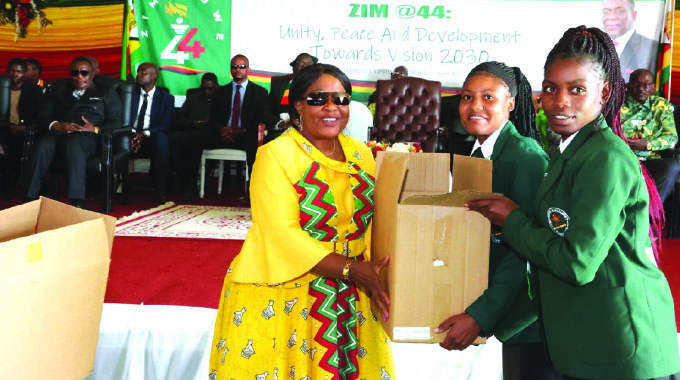. . . says private prosecution a mere privilege for Prosecutor-General
Zvamaida Murwira Senior Reporter
Issuance of private prosecution to citizens by the Prosecutor-General is merely a privilege and not an entitlement, Vice President Emmerson Mnangagwa told Parliament yesterday.
VP Mnangagwa said the Prosecutor-General is mandated to carry out prosecutorial work and could use his discretion to grant private prosecution when he declined to charge accused persons.
He said this in the National Assembly while responding to a portfolio committee report on Justice, Legal and Parliamentary Affairs that raised constitutional issues when it tabled its report on the Criminal Procedure and Evidence Amendment Bill.
The committee chaired by Harare West MP Ms Jessie Majome (MDC-T) had said failure by PG to issue private prosecution certificates to juristic person raised eyebrows by creating an impression that he was protecting powerful people.
“That is the intention of the Constitution, that the Prosecutor-General has a monopoly to prosecute. Even on private prosecution, it is even in the Constitution, it is not a right but just a privilege,” said VP Mnangagwa, who was steering the Bill as Justice, Legal and Parliamentary Affairs Minister.
Ms Majome, Mutare Central MP Mr Innocent Gonese (MDC-T) and Proportionate Representative MP Ms Priscilla Misihairabwi-Mushonga (MDC) said the Constitutional Court had since directed that the PG was liable to issue private prosecution in cases where he declined to take a case to the courts.
They were referring to a case against Bikita West MP Dr Munyaradzi Kereke and former Telecel board member, Dr Jane Mutasa where courts directed that the PG should issue a private prosecution against them.
The legislators also criticised the Bill for retaining the death penalty, which they said had been set aside by the Constitution.
VP Mnangagwa said the Constitutional Court interpreted the law and the Executive could amend the law if the interpretation given did not serve the primary purpose of the law.
“The Constitutional Court interprets the law to make it clear. It affords us an opportunity to ensure that the law gives expression that we wanted. As we draft the law, an expression might give multiple and double interpretations, when that happens, we will not shy away to make what the people wanted it to be and not what the courts want it to be,” said VP Mnangagwa.
On death penalty, VP Mnangagwa said the Constitution did not abolish it but restricted its application.
“Personally I am against (the) death penalty, but it is the law that we are articulating and not personal views,” he said.





Comments